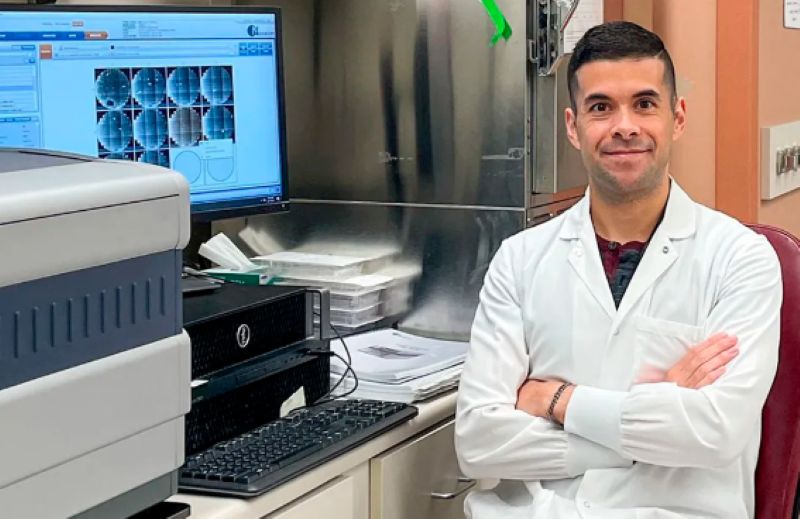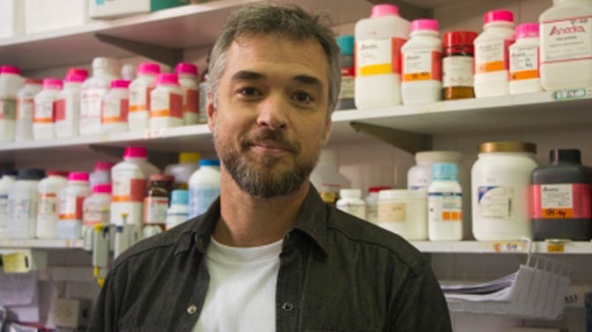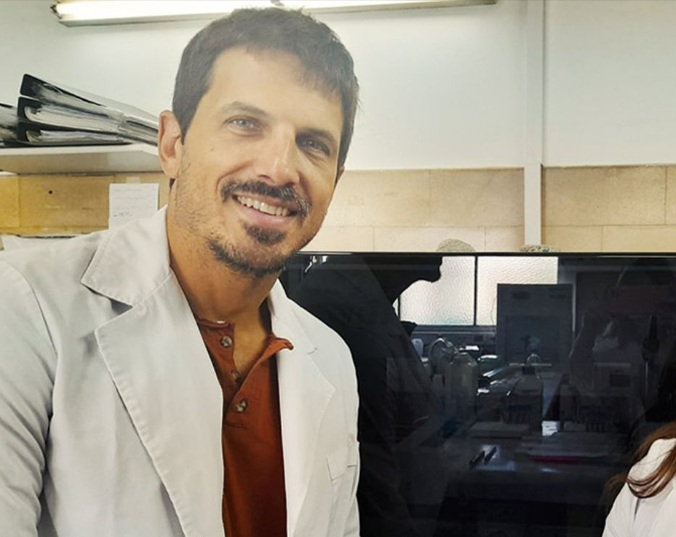Renzo Emmanuel Vera is an Argentine researcher who earned his Bachelor’s degree in Biological Sciences from the National University of Río Cuarto, in the province of Córdoba, Argentina. He completed both his undergraduate and doctoral studies at the Faculty of Exact, Physical-Chemical and Natural Sciences, where he received his PhD in Biological Sciences.
Research Focus: Cell Populations, Tumors, and Therapies
Among the key topics of Vera’s research are cellular populations, tumors, and therapeutic strategies. Trained in Argentina, Vera now conducts research in the United States, specifically in Minnesota.
During his time in Argentina, he was part of the research group at the Department of Molecular Biology at his alma mater, focusing on molecular oncology and anticancer therapies. He is currently based at the Schulze Center for Novel Therapeutics, part of the Division of Oncology Research at the Mayo Clinic.
The Mayo Clinic is not only a renowned medical care facility but also a prominent center for research and education. It brings together diverse scientific fields such as computational biology, molecular biology, cancer biology, and neurology. Within this multidisciplinary environment, Vera concentrates on cancer research, with a special focus on its genetic aspects.
Cancer Research and Molecular Strategies
Vera integrates molecular biology and epigenetics in his quest to develop new therapies against tumors. While molecular biology studies the cellular molecules that underpin biological activity in living organisms, epigenetics examines gene-regulating changes that do not involve alterations in the DNA sequence.
Epigenetic changes are inherited but do not modify the DNA itself. Through the lens of these two sciences, Vera investigates cancer as part of his postdoctoral research—particularly pancreatic cancer—by exploring epigenetic regulation in tumor therapies.
The core of Vera’s research program involves analyzing the epigenetic pathways that influence how healthy cells transform into cancerous ones. By understanding how tumor cells behave, Vera aims to create faster and more effective responses to a form of cancer as challenging as pancreatic cancer.
He has emphasized that while cancer often originates from DNA mutations, in many cases it results from epigenetic changes, which are unrelated to DNA sequence alterations. One of his main goals is to design drugs that specifically target these epigenetic mechanisms, which contribute to the aggressiveness of pancreatic cancer.
Epigenetics and Cancer
Although cancer is commonly linked to mutations in cellular DNA, in many instances, cells undergo changes that are not connected to DNA sequence information. This is why epigenetics has become a key area in cancer-related medical research.
Given that cancer remains one of the leading causes of death worldwide, it is essential to develop studies that analyze all potential variables influencing the disease. This includes not only the genetic component but also the epigenetic one.
Epigenetic changes also play a critical role in other diseases, such as multiple sclerosis, and in cancer, they significantly affect how the disease progresses. Among these changes, DNA methylation and histone modifications are particularly noteworthy.
- DNA methylation is a chemical modification of DNA that can alter gene expression without changing the DNA sequence.
- Histone modifications, on the other hand, regulate how genes are expressed or silenced.
Although cancer research has historically focused on genetics, increasing attention is being given to epigenetic factors and their potential for therapeutic intervention.
In this context, Renzo Emmanuel Vera stands out among Argentine researchers who are bridging cancer studies and epigenetics. Through his work, he is advancing the understanding of pancreatic cancer, one of the most aggressive forms, and opening the door to new therapeutic alternatives.
His research supports the development of personalized medicine, tailored not only to each patient’s unique biology but also to the genetic and epigenetic markers that define their response to disease.




